
C/O. Julian Rosefeldt. Jim Jarmusch. Jean-Luc Godard.


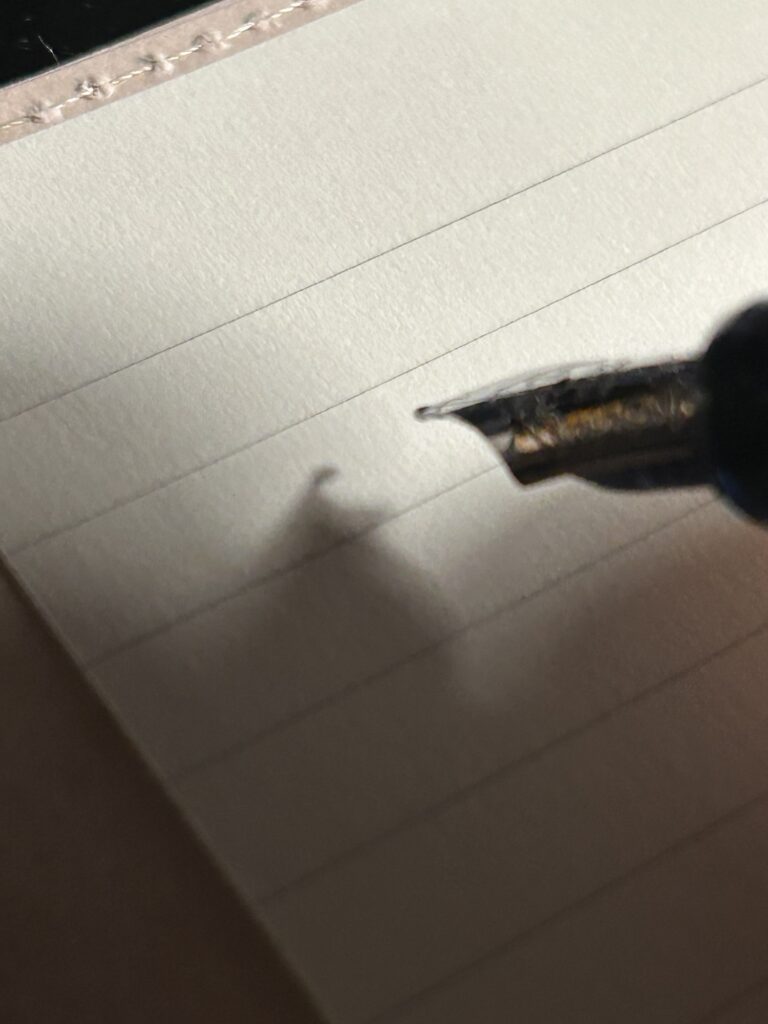
I don’t bullet journal. I don’t track. I don’t write poetry. I don’t write prose. I sort of journal, mindlessly. Only to feel the ink pouring on paper. I don’t collect pens. I don’t collect notebooks. Inks, too. Though this part is harder.
From the day I discovered fountain pens, inks have been absolutely fascinating. It was not long ago, not even two months, that I got myself a Pilot Custom 74 (medium nib, converter con-70), and a bottle of Teranishi Guitar Melancholic Blue. Now I have four inks and primarily write with Iroshizuku Shin-Kai. Love both of them, but for now I’m mesmerized with the shin-kai flow and the shades between blue, grey and black. The shading, the variety (infinity) of colors, the spectrum of properties.
Paper matters too now. Midori MD or Tomoe River (like in Hobonichi, in my case, which was an earlier discovery of this year). Everything suddenly starts to matter. It is both finicky and simple. Learning to operate —- ink, clean, maintain —- is a process. But then there is the simplicity of the setup. You have a container for ink, an ink of choice, and a nib to deliver ink to paper.
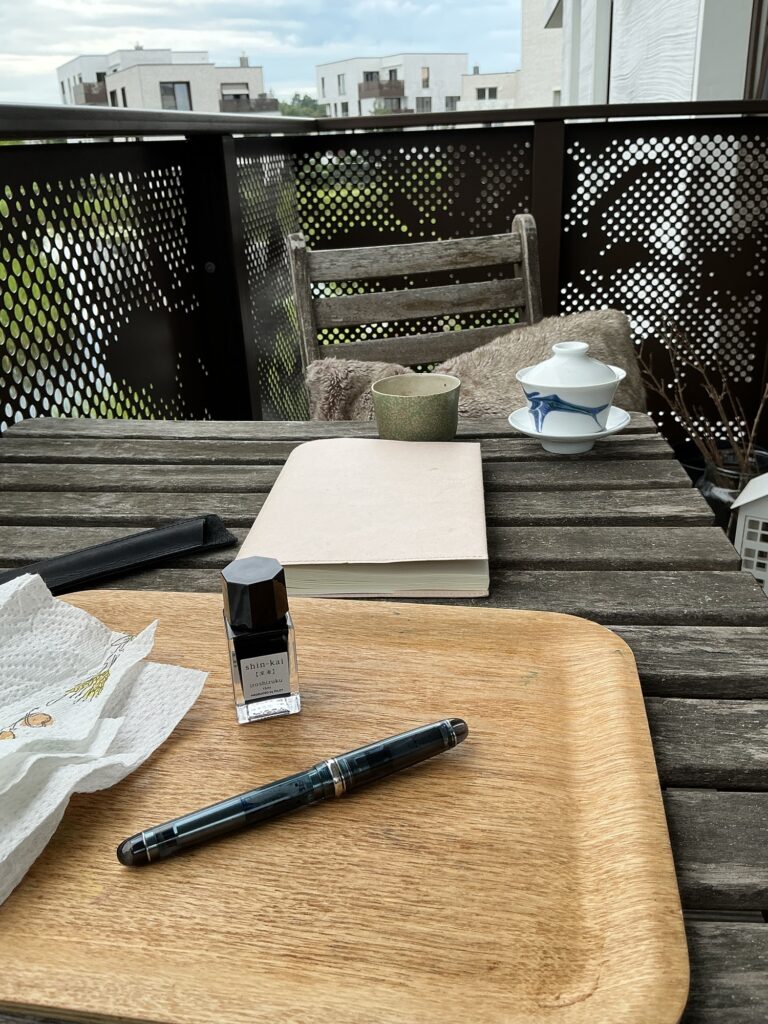
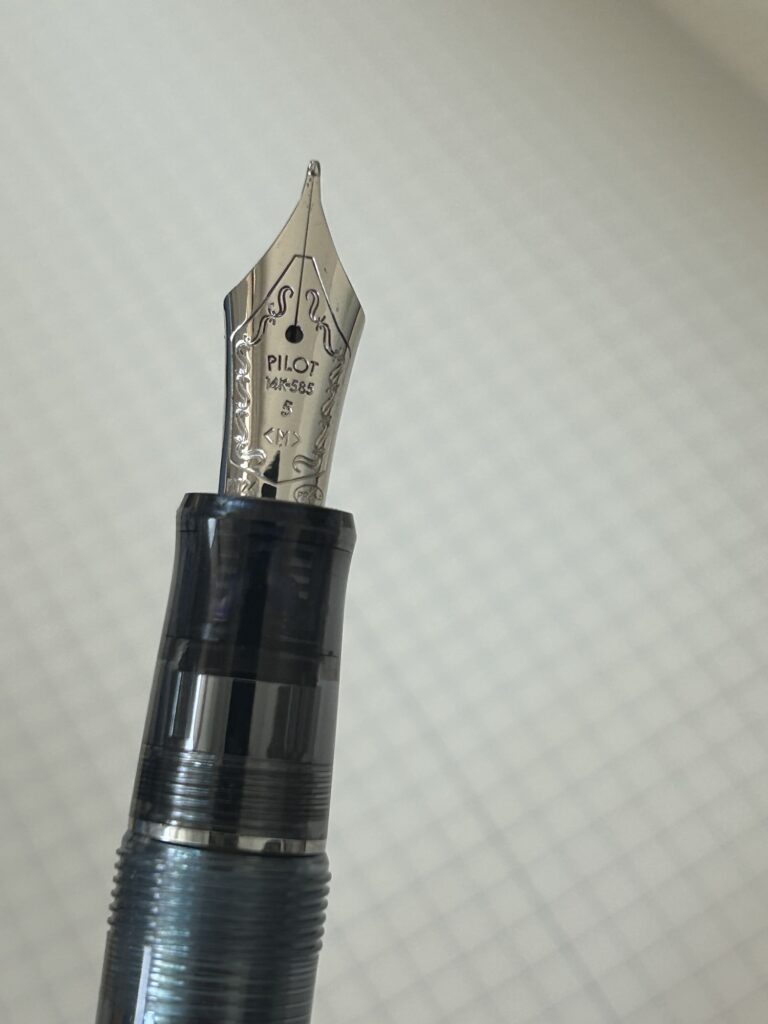
First tea of the 2025 harvest, bought from Nannuoshan.
Said to be a rare Japanese green tea, harvested from a cultivar grown only on Tanageshima island, in southern Japan. The farmer is Iba Akihisa (射場彬央).
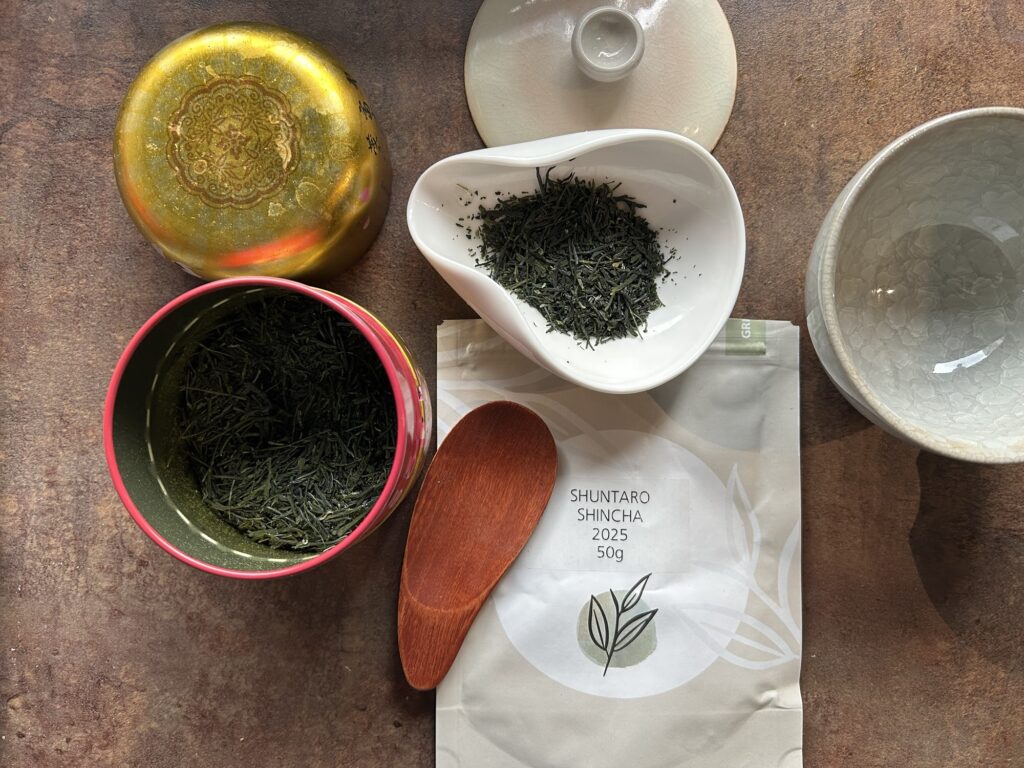
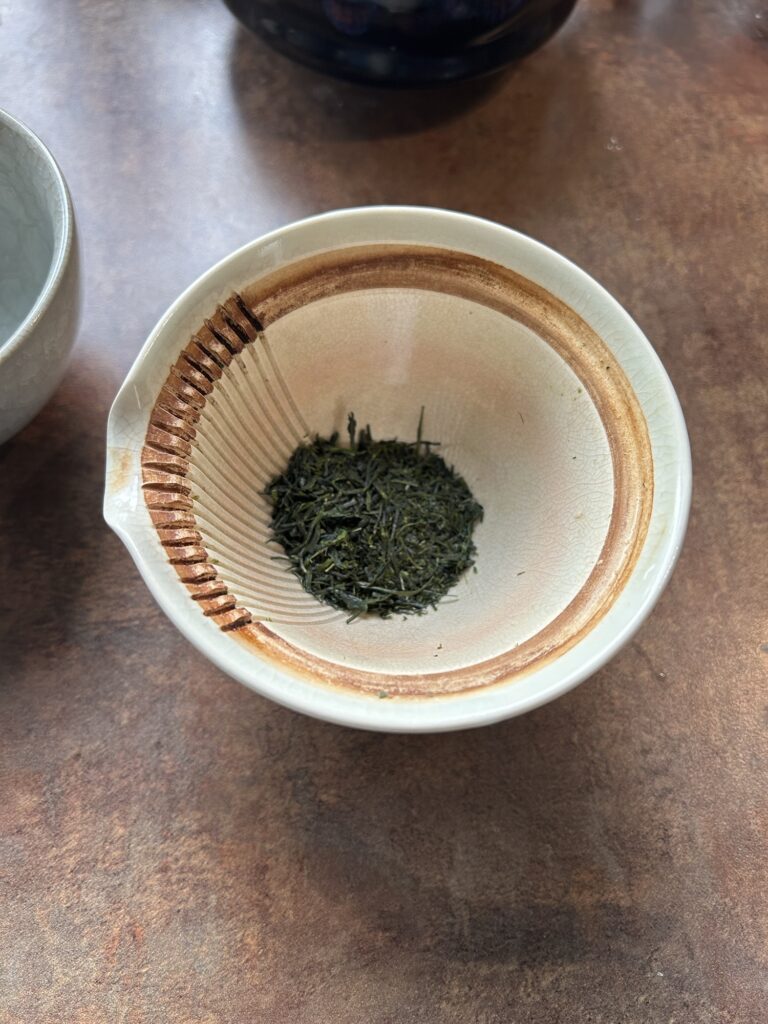
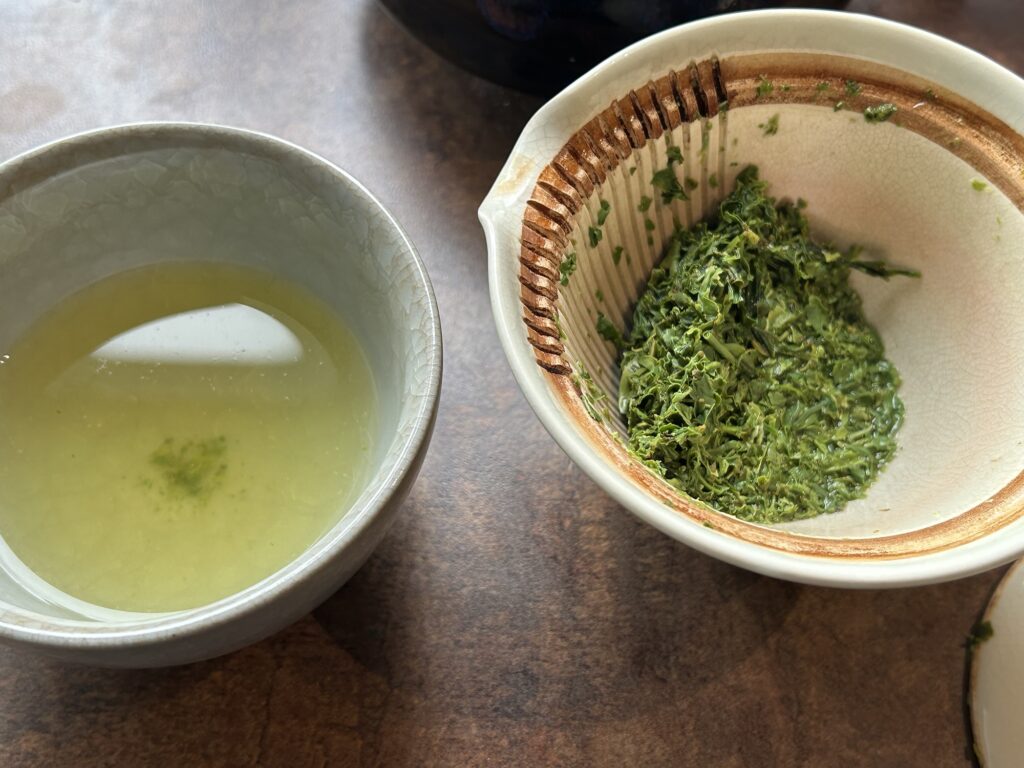
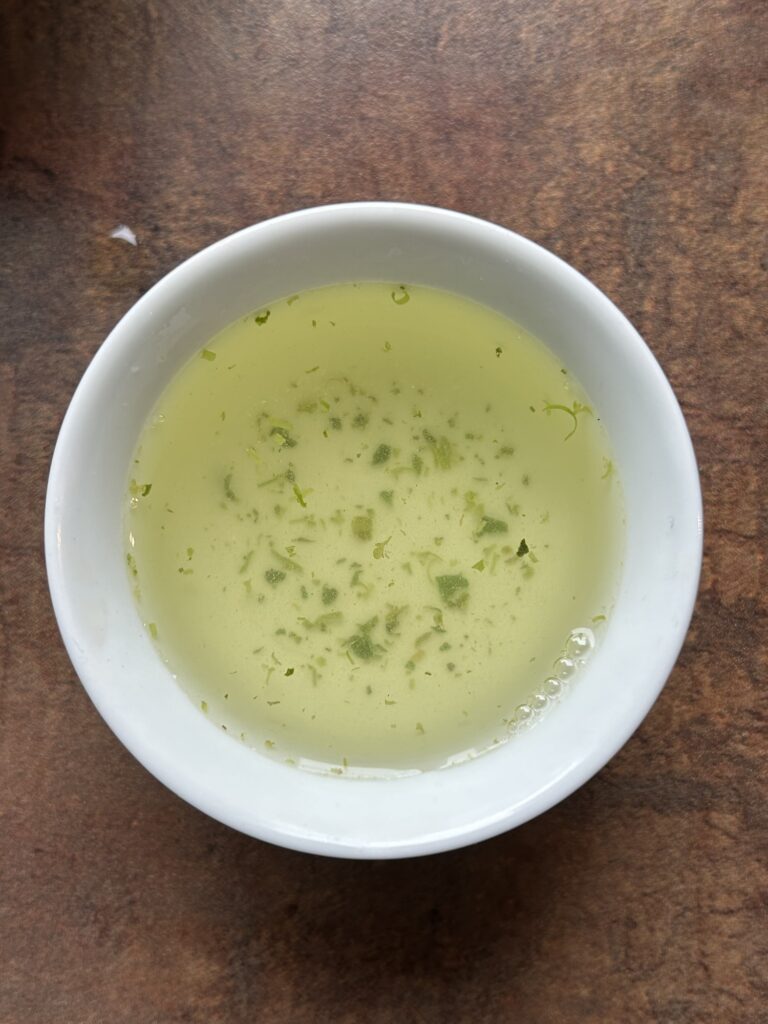
The taste is gentle, sweet, and tamed. My palate is not as sophisticated as to distinguish subtler notes. Overall, the tea is a delicate version of sencha. No bold prominence, but the specific grassy taste which verifies once again my love for sencha.
“[media] decentralization does not necessarily increase democracy in the public sphere or in the state. On the contrary, the technologies of decentralized communication can be coupled very tightly to the charismatic, personality-centered modes of authoritarianism long associated with mass media and mass society. They can in fact be made cornerstones of such power.”
Not sure how much I care about public writing anymore (that is to say, I don’t care about it at all). Yet, I like this space, and I enjoy having a site, separate from any social media. Writing should have a purpose, and this one seems to be gravitating towards keeping a log, a list, of the teas that I buy and drink.
Here it is, my teas.
I am updating it, and will be adding more when my new small parcel comes in. Cold months see a decline in green teas and a rise in oolongs (autumn) and blacks (winter). With greens, genmaicha becomes a go-to, since it’s lighter and I can drink it in bigger quantities, but I mostly drink blacks. Keemun was my most frequent choice last year or two. And this year I am still undecided. Possibly because it’s harder to find a decent Keemun, but also because I don’t really mind drinking big quantities of a more common Ceylon tea, of supermarket quality, but only if supermarket has Twinings or Fortnum & Mason (they lately don’t).
I might write something about tea, or possibly something else. Or I might disappear again into the offline where I drink tea, read books, and worry about the world and Ukraine. It’s been 1001 days of the effing war. Ukraine will not be obliterated, even though some monsters would like to see that happen very much.
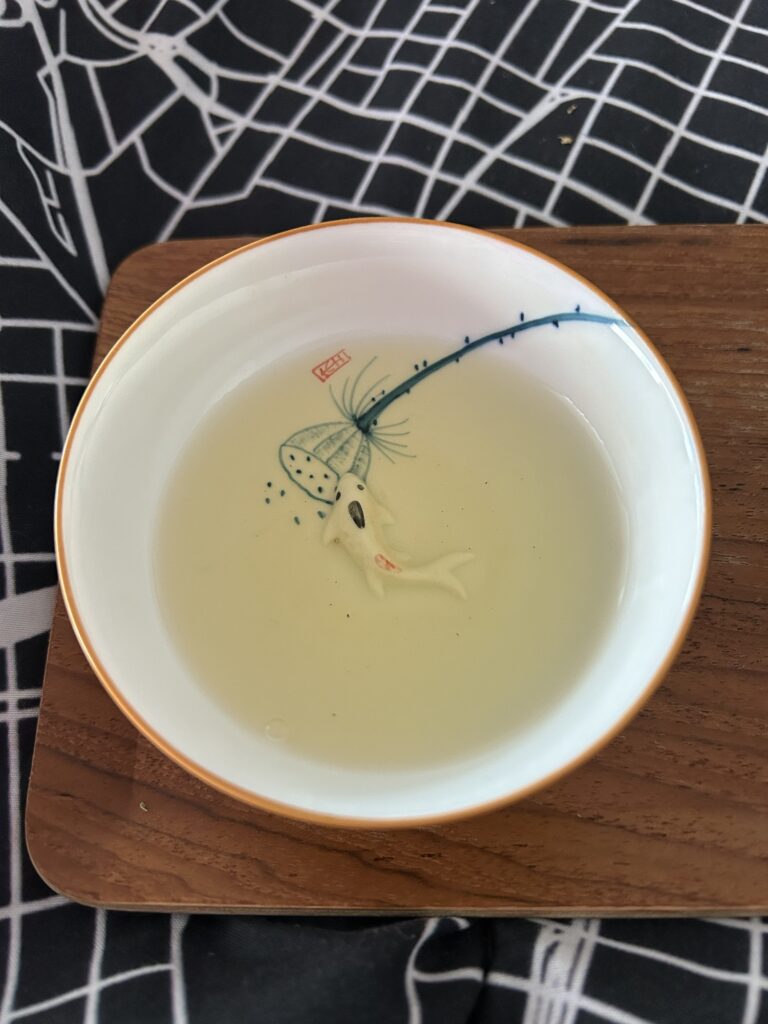
One of my favorite Chinese greens. A classic. And while I am mostly focused on Japanese green teas, this one made a comeback to my tea cabinet.
Purchased from Nannuoshan. 16 April 2023 harvest.
Origin: Qitoushan, Jinzhai, Lu’an, Anhui, China
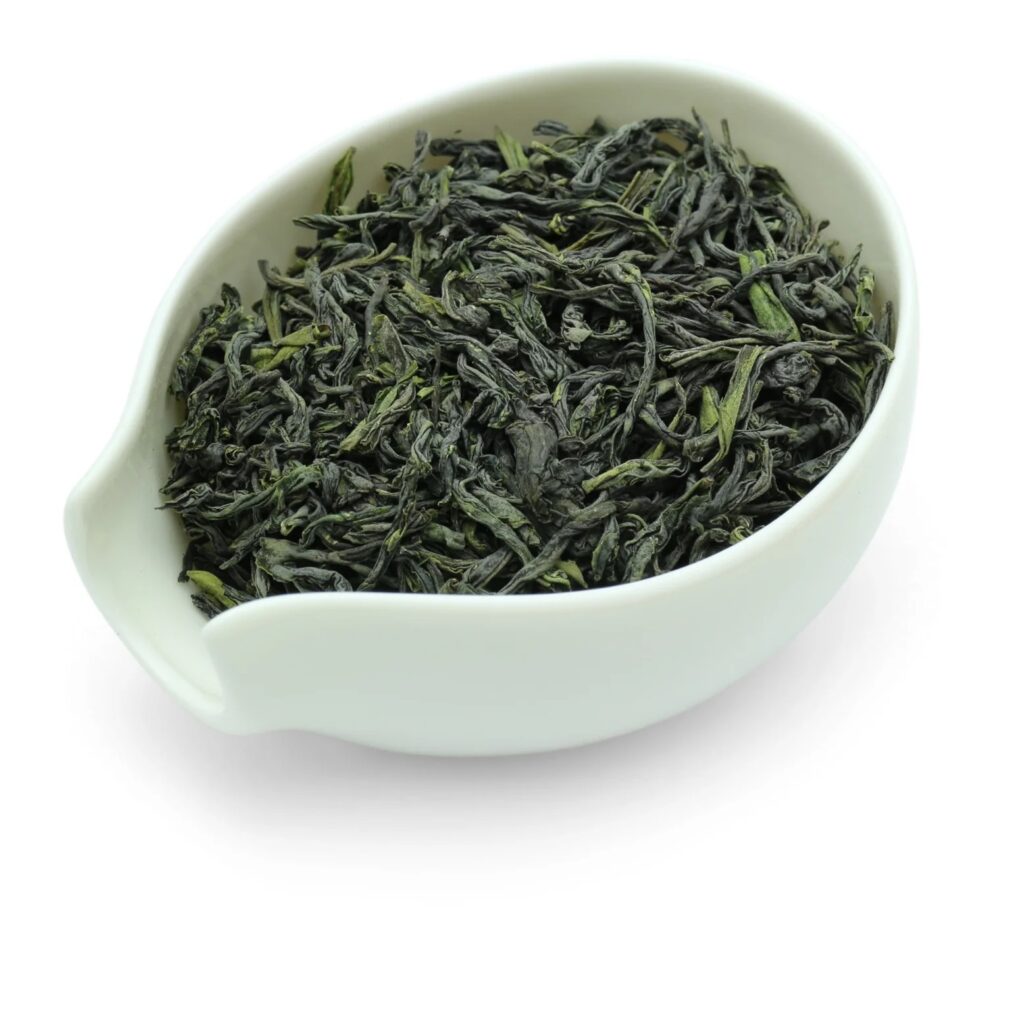
Soft texture. Not the grassy notes of sencha, but instead more aromatic. Gentle, mineral, toasty — this I wouldn’t have guessed, but “toasty” is on point, as described on the site.
In winter, I prefer oolongs and blacks, but this green is just what is needed for a sunny day. Brings in thoughts of spring and warmth.
My mother taught me, wanting is bad. When you want something, you don’t deserve it. You deserve things by being humble, and not wanting them. You don’t ask to buy you a new toy, you can hint, maybe, or better yet, just show interest but don’t say you want it. My father taught me by actually not wanting almost anything. My grandmother told me, “who wants a lot, gets little”. Supposedly, if you want little, you get a lot. Or a lot, compared to your needs, or desires. When you grow up, it is so hard to recognize your needs and your desires, and so easy to become what others expect you to be.
Holidays. There are national traditions. There are family traditions. Easy to follow, and as easy to love as they are to hate. Then you move to another country, that has different traditions. And your own country changes at the same time — in ways that are so important, albeit painful.
I come from Ukraine. I was born in the USSR. First, there was no Christmas. Only New Year’s traditions: exchange of gifts (Ded Moroz bringing you presents under the New Year’s Tree), staying up late, champagne at midnight (for adults), salads that have nothing green in them but a lot of mayo. Then, there was Christmas, in January, which was also my birthday, and since my family was not quite religious, it was only semi-celebrated. Traditional food, that’s it. Now, Ukraine celebrates Christmas on both 25th of December and on the 7th of January. But I’m not in Ukraine anymore. And holiday traditions are very tied to children. Being a parent, I feel it makes sense to conform to the cadence of gifting and to adopt some of the traditions of the country I’m in and more international. So, gifts and Santa Claus on Christmas, in December. Local food traditions too, but also, inherited family and country traditions from my childhood.
People who find themselves in a similar situation, have to make choices: when is the main gift giving? Do you spread presents across multiple dates, or consolidate in one? What do you want to cook? How do you want to celebrate, and what exactly?
This is the time when we can decide, and choose, what holiday traditions look like for our children. And we can create something unique for them — recognizing the traditions of the locality, and letting ourselves be fascinated by them, and participate in them. But also — choosing what to pass on from our ancestors; and also — what to create ourselves. With so many dogmas crumbling in my lifetime, so many things to which I opened my eyes, so many lies that history uncovered, with the world that has grown so much bigger — I feel the power to create a better narrative for my child. I finally feel the freedom not only in my would, but also the freedom to choose, and, more importantly, to build build traditions, based not just on the history, but also on the values.
Two months of war in Ukraine made it impossible for me to write. In the time when, it seems, it’s only natural to try and capture everything you feel, i was paralyzed by the absurdity and the hell of war, and unable to put anything down on paper. Maybe the shock is wearing off. I’ll write bit by bit, unimportant things, as the important ones keep being stuck in my throat, and the pain and the tears and the analysis of it all — just impossible.
I’m in a hurry all the time. I’m doing one thing, and thinking about the next, almost always counting time, how much I have left till the next activity. Even as I’m relaxing with a book, or a cup of tea, or both, I think, 15 more minutes, or 40 more minutes — and I already feel sorry, as if I’m in that moment ahead, where I have to stop and do something else, something that is a must and not a nice-thing-for-myself. This probably takes away half of my relaxing experience, but that is all I know. All I’ve ever known, really. “I have to” dominates my life emotionally, even though mentally I know that I’m a lucky one with a lot of “I get to.”
How do I switch? Why am I like this?
This is a list of ways that I know of aimed at helping Ukraine and its citizens while it suffers from Russian aggression.
National Bank of Ukraine opened two accounts that accept donations towards the army, as well as humanitarian donations. You can pay directly on their page, as well as transfer money whatever the currency is:
NBU for Armed Forces
NBU for Humanitarian Aid
One of the biggest organizations raising funds to support Armed Forces:
Save Life
Art for Freedom. Sessions from creatives with donations for Ukraine (until the 18th of March).
Happy Kids (Poland). Evacuating orphanages and taking care of them.
UA Help Info. Collection of links and information on help by country (including within Ukraine itself).
InfoHelp UA. With info in Ukraine and outside — including evacuation, information on countries, etc. Also, how to help those in trouble.
Awesome Ukraine Support on GitHub. A frequently updated page with resources.
Ukraine War – Info and ways to help.
Stand With Ukraine. A map of where protests take place.
Telegram groups for those fleeing Ukraine and those trying to help
Useful info for those who are crossing the border with Slovakia. This is an official initiative led by a group of professionals, activists and opinion leaders and 35+ partnering NGOs, all covering different aspects of crisis.
For Berlin, additionally, there’s information here: Help for Ukrainians
Official information for those who have arrived, in Russian: https://www.berlin.de/ukraine/ru/pribytie/
For Berliners
Follow this channel to learn how you can support:
https://t.me/berlinhelpsukraine
For Ukrainians
Follow this channel for important updates: https://t.me/germanyhelpsukraine
Handbook: https://handbookgermany.de/de/ukraine-info/ua.html
More in Poland: Grupa Granica. An NGO helping refugees.
For those Ukrainians who are looking for a new job, there’s a site here:
Happy Monday – job search
On that same site, you can also add a job from your company to help Ukrainians in need. Add a job.
UA Talents. To look for a job in EU.
Wunderflats added a section specifically for Ukrainians.
Host a Sister. For women all around the world